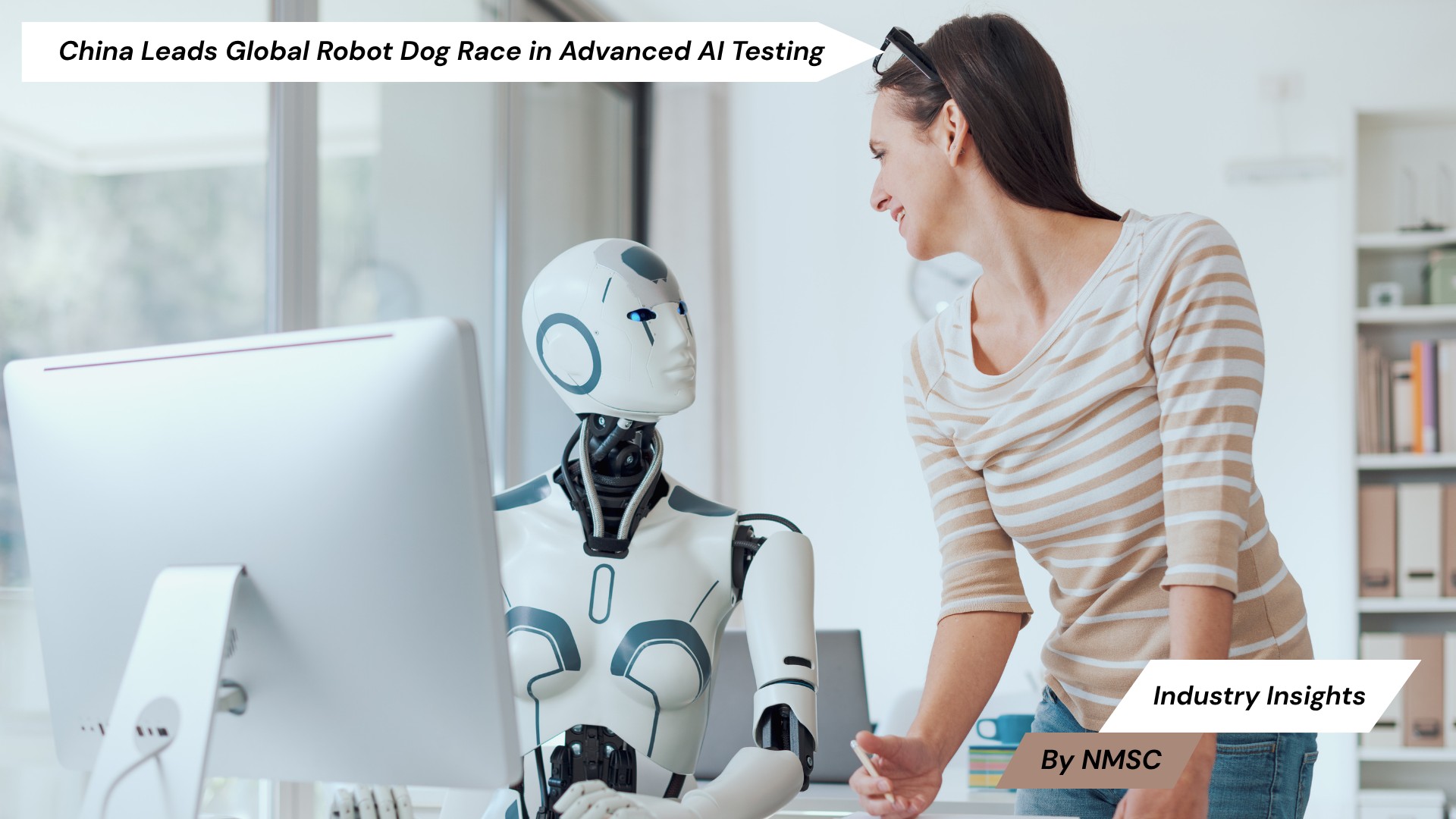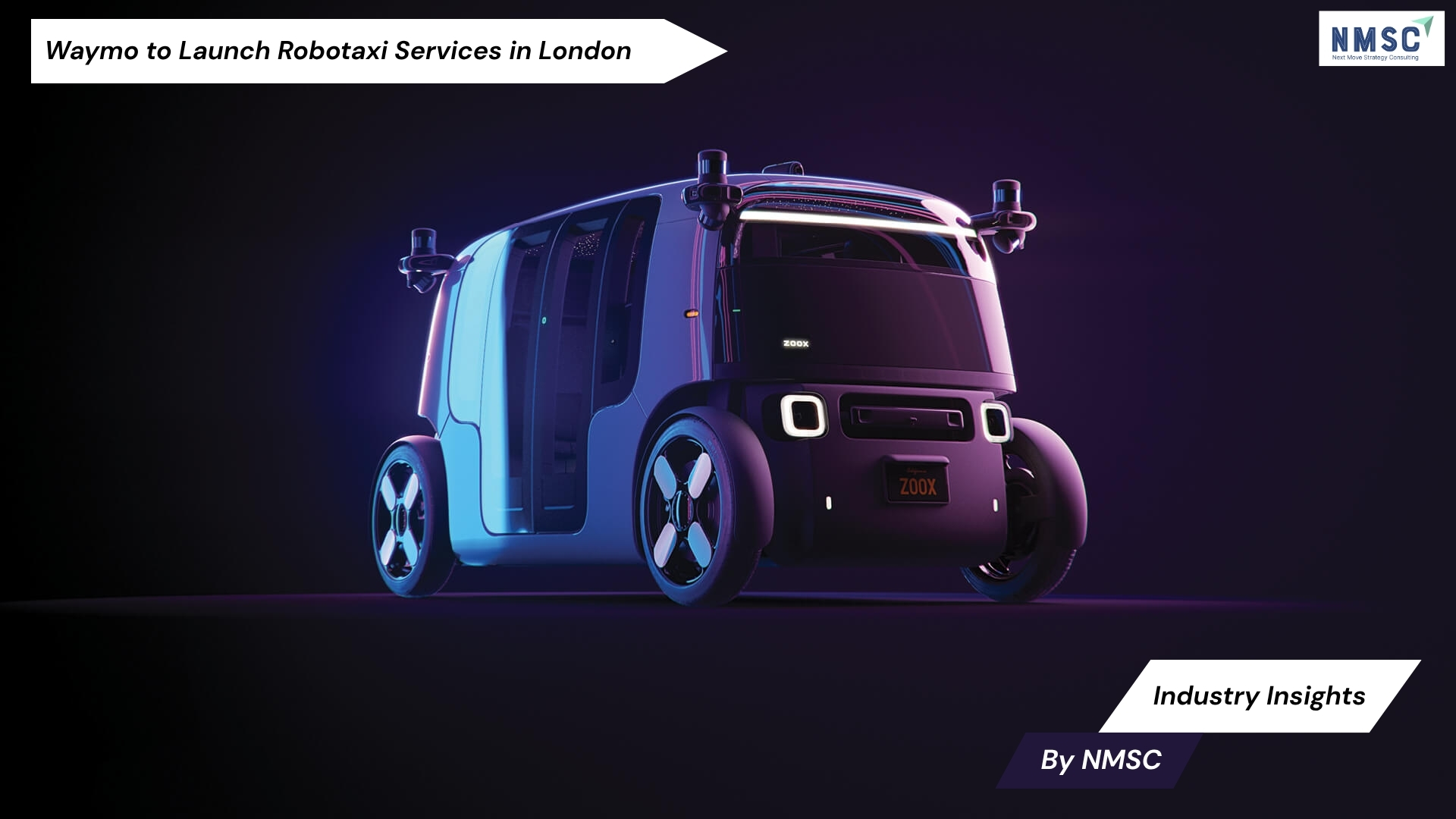China Leads Global Robot Dog Race in Advanced AI Testing
Published: 2025-10-27

Industry Insights from Next Move Strategy Consulting
Humanoid robots have garnered significant attention this year, but quadrupeds-the mechanical “dogs”-are emerging as the true proving ground for embodied artificial intelligence. These four-legged machines offer superior stability and agility over upright designs, making them better suited for real-world deployment.
A Decisive Market Leadership in Quadruped Robotics
The latest publicly available data shows Hangzhou Unitree Technology Co. captured approximately 70 percent of global quadruped sales volume in 2023. Even two years earlier, Unitree shipped 10 times more units than its closest competitor, US-based Boston Dynamics Inc. This lead will be difficult for the US to reclaim. As quadrupeds evolve from backflipping demos to critical testbeds for real-world navigation-the same capabilities humanoids must master to become commercially viable-China’s progress offers a preview of who will win the humanoid race, which Elon Musk is betting Tesla Inc.’s future on. Morgan Stanley forecasts this market could surpass $5 trillion by 2050.
State Support and Ecosystem Momentum
Beijing’s backing of embodied artificial intelligence has supercharged the domestic robotics sector, while vast tech and electric vehicle supply chain have slashed costs and accelerated development. Unitree’s rise highlights China’s open-collaboration approach. Last week, the company launched an education platform for students to train its robot dogs—specifically the lower-cost Go2 model, starting at $1,600. This opens the Go2 ecosystem for learning operation, maintenance, and application research, while crowdsourcing valuable training data and building brand loyalty among future robotics engineers. The initiative helps move droids beyond repetitive tasks toward broader utility.
Boston Dynamics’ Spot robot offers more capabilities and launched years earlier, but its high price has limited adoption in research labs. Unitree’s affordability, by contrast, has fostered a thriving ecosystem of developers and academics. As more labs and universities use its hardware, a virtuous cycle strengthens Unitree’s market position.
Financial Milestones and Industry Challenges
Unitree is preparing one of China’s most anticipated initial public offerings in years, targeting a $7 billion valuation. Founder Wang Xingxing, seated front-row during President Xi Jinping’s February meeting with tech executives, reported annual revenue exceeding $140 million—and profitability since 2020, a rare achievement in a cash-intensive sector.
Despite the momentum, major hurdles remain. Many robots are still proving usefulness beyond flashy tricks. Government support risks turning some into expensive display pieces for state-owned enterprises. Public spectacles—like a half-marathon where most robots tripped or failed, flailing kick-boxing matches, and jerky soccer games—have drawn mockery. But these experiments reveal rapid maturation at unprecedented scale, mirroring the quiet scaling of autonomous vehicle after early disappointments. They also showcase China’s vast army of engineers continuously refining the technology.
China’s automation push is already reshaping industries. Last year, over 2 million factory robots operated in the country—the largest fleet globally, per International Federation of Robotics data. In 2024, China installed 295,000 industrial robots—more than the rest of the world combined, and over eight times the US total. This reflects a demographic necessity in a system with fewer labor protections, illustrating analyst Dan Wang’s observation: America is run by lawyers; China, by engineers.
Implications for the Human-Centered AI Market: Next Move Strategy Consulting’s View
China’s quadruped dominance—driven by affordability, open platforms, and large-scale real-world testing—is profoundly influencing the Human-Centered AI Market, where systems prioritize intuitive, safe, and collaborative human interaction. By democratizing access to embodied AI through low-cost hardware and developer ecosystems, Unitree’s model accelerates integration into human-facing applications such as assistive support, co-working environments, and educational tools. This shift enhances trust, accessibility, and practical utility—positioning embodied AI not as replacement, but as augmentation. Global stakeholders must now prioritize inclusive, human-focused innovation to keep pace.
Setting the Foundation for Future Robotics
By driving down costs and winning over the research community, Unitree is quietly setting the stage to dominate a range of applications in the new industrial age. If the global dream for humanoid robots means they must walk on four legs before standing on two, China’s lessons in training robot dogs are critical.
Prepared by: Next Move Strategy Consulting
About the Author
 Nitrishna Sonowal is a dynamic SEO Executive and Content Writer with 3+ years in digital marketing. She blends data-driven SEO strategies with creative storytelling to craft content that boosts engagement, drives traffic, and strengthens brand presence. Experienced in keyword research, on-page optimization, and content strategy, she delivers measurable results for clients across industries. Passionate about digital trends, she thrives on turning insights into impactful campaigns. Outside work, she enjoys dancing, baking, and exploring new destinations.
Nitrishna Sonowal is a dynamic SEO Executive and Content Writer with 3+ years in digital marketing. She blends data-driven SEO strategies with creative storytelling to craft content that boosts engagement, drives traffic, and strengthens brand presence. Experienced in keyword research, on-page optimization, and content strategy, she delivers measurable results for clients across industries. Passionate about digital trends, she thrives on turning insights into impactful campaigns. Outside work, she enjoys dancing, baking, and exploring new destinations.
About the Reviewer
 Sanyukta Deb is an accomplished Content Writer and Digital Marketing Strategist with extensive expertise in content strategy, SEO, and audience engagement. She specializes in building strong brand visibility through data-driven campaigns and impactful, value-added researched content. With a passion for creativity and innovation, she blends strategic thinking with design and communication to craft meaningful digital experiences. Over the years, she has contributed cross-functional marketing projects, driving measurable impact and audience engagement.
Sanyukta Deb is an accomplished Content Writer and Digital Marketing Strategist with extensive expertise in content strategy, SEO, and audience engagement. She specializes in building strong brand visibility through data-driven campaigns and impactful, value-added researched content. With a passion for creativity and innovation, she blends strategic thinking with design and communication to craft meaningful digital experiences. Over the years, she has contributed cross-functional marketing projects, driving measurable impact and audience engagement.
















Add Comment